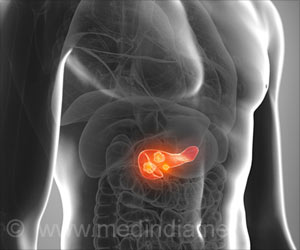Scientists at Princess Margaret Hospital have uncovered the role of two variants of gene p53, which are crucial to the development of cancer.
The two "cousin" proteins related to gene p53 family were found to play a crucial role in cancer development.The team found that when gene p53 is defective, it loses its ability to regulate healthy cells and suppress cancer.
For two decades, gene p53 is known to be the master gatekeeper that controls all cancer development.
"Until now, we thought these cousins (TAp73 protein isoforms) were not involved in cancer. Our results prove that they are. This is fundamental to understanding every human cancer and furthering the science," said lead researcher Dr. Tak Mak, director of The Campbell Family Institute.
The new discovery has opened up a critical new branch of scientific inquiry.
In the lab, Dr. Mak and his team challenged traditional thinking about the role of these proteins.
Advertisement
"When we turn one 'on' or 'off', the other changes behaviour and becomes part of the cancer-causing process. The key is understanding the ratio of the interaction."
Advertisement
The findings are published online in the journal Genes and Development.
Source-ANI
SRM















